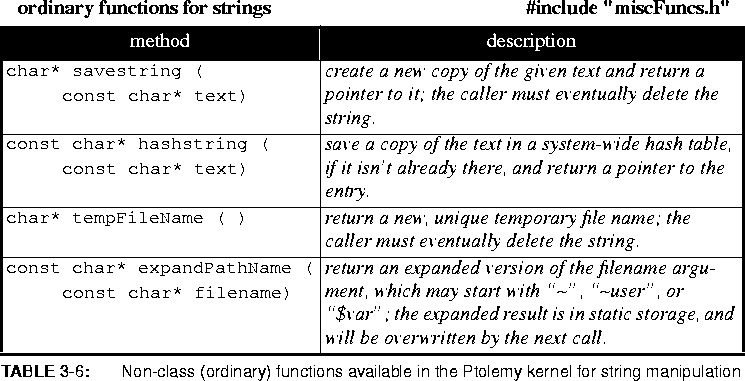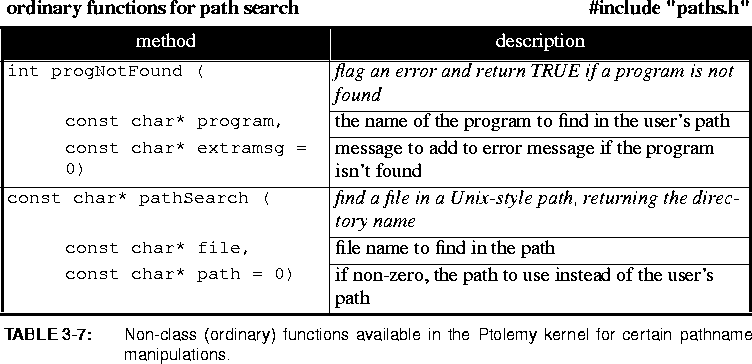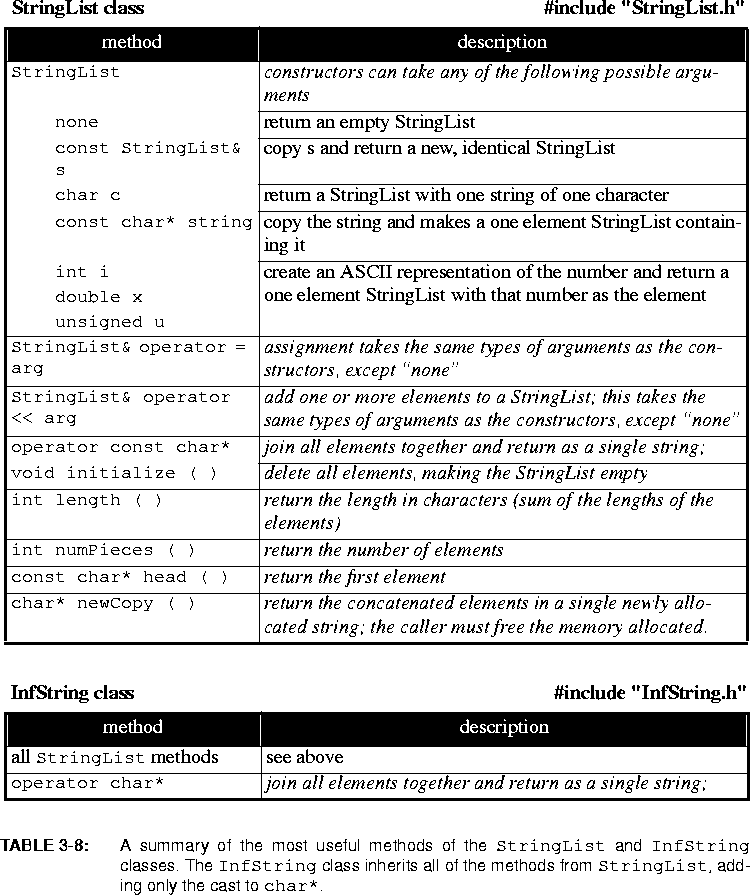










"~username") or an shell environment variable ("$VARIABLE"). Also provided is a function for verifying that an
external program to be invoked is available, and a function for searching the user's path.
Two classes are provided for manipulating
strings,
InfString, and
StringList, these classes are summarized in figure
3-8

In fact, InfString is publicly derived from StringList, adding only the cast to char*. StringList is implemented as a list of strings, where the size of the list is not bounded ahead of time. StringList is recommended for applications where the list structure is to be preserved. The cast to char* in InfString destroys the list structure, consolidating all its strings into one contiguous string.
The most useful methods for both classes are summarized in table . Since InfString differs by only one operator, we show only that one operator.
A word of warning is in order. If a function or expression returns a StringList or InfString, and that value is not assigned to a StringList or InfString variable or reference, and the (const char*) or (char*) cast is used, it is possible (likely under g++) that the StringList or InfString temporary will be destroyed too soon, leaving the const char* or char* pointer pointing to garbage. The solution is to assign the returned value to a local StringList or InfString before performing the cast. Suppose, for example, that the function foo returns an InfString. Further, suppose the function bar takes a char* argument. Then the following code will fail:
char* is implicit). The following code will succeed:






